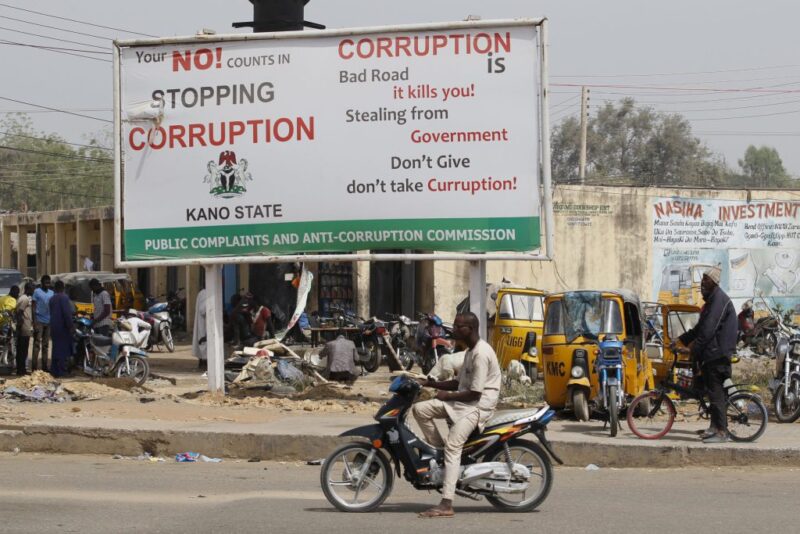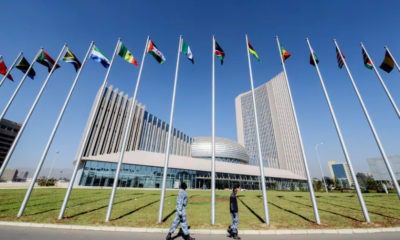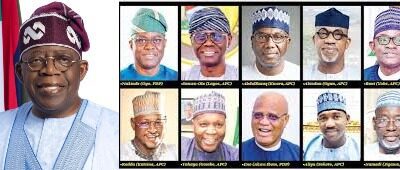National Issues
Pervasiveness Of Corruption And Its Weight On Nigeria -By Abachi Ungbo
Systemic corruption has well and truly pervaded the Nigerian public sector. An International Monetary Fund (IMF) research defined systemic corruption as the abuse of public office for private gain. And, it remain an important headwind in our drive to achieving our potentials. Our dreams of a great country has not only been defanged but also stolen by corruption which has reached pandemic proportion.

We were treated most recently to a cocktail of sordid revelations of monumental moral and financial sleaze which amply illustrated the breadth and depth of corruption in the country. In effect, what we got was a triple whammy- the probing of the boss of the Economic and Financial Crime Commission (EFCC), investigation of misappropriation of funds at the Niger Delta Development Commission (NDDC) and Nigeria Social Insurance Trust Fund (NSITF). The House of Representatives inquiry on the NDDC matter brought a tad of comic relief to a benumbed nation as a result of the theatrics of the acting Managing Director- Professor Pondei, as he came under serious questioning.
It goes without saying, that the scandals exemplify the knavery of those entrusted with our common wealth. The corruption cases may after all pale in comparison with many that are underhandedly perpetuated at various public institutions. Somewhat, not many were really shocked owing to the pervasiveness of spectacular levels of corruption which are often carried away by the wave of inactions as well as the slew of pending high profile corruption cases. Nigerians are already second guessing the direction of the current investigations.
Systemic corruption has well and truly pervaded the Nigerian public sector. An International Monetary Fund (IMF) research defined systemic corruption as the abuse of public office for private gain. And, it remain an important headwind in our drive to achieving our potentials. Our dreams of a great country has not only been defanged but also stolen by corruption which has reached pandemic proportion.
It constitute a grave existential threat and the pernicious effects are well embedded in literatures and commentaries on our socioeconomic development. Corruption has been described as the most shocking crime of modern societies being committed by the modern civilized men mostly by those who enjoy power. Nigeria ranked 146 out of 180 countries two places down compared to 2018 results, according to 2019 Transparency International (TI) Corruption Perceptions Index and moving two places down to rank as the world’s 34th corrupt nation falling by one point compared to 2018. Human Environmental Development Agenda (HEDA) reported that the phenomenon has cost the country the loss of about 600 billion U.S dollars in 59 years.
Nigeria is an eloquent case of how corruption has blighted economic development by fostering deep distortions and inefficiency; choking economic growth by bribes and kickbacks from capital projects; reducing the quality of government services and infrastructures; draining billions of dollars every year from the economy; stymieing development and vitiating the social contract between government and its people. Corruption is hydra-headed and according to Matthew Page, a scholar at the Carnegie Endowment for International Peace, corruption in Nigeria takes the form of massive contract fraud to bribery, from straight up embezzlement to complicated money laundering schemes; from pocketing the salaries of nonexistent workers to steering plum jobs to relatives and friends. Some officials enjoy perquisites so excessive that they are widely seen as a form of legalized corruption. The trust in the public sector to act in the best interest of the people has been utterly eroded. Joe Biden puts it this way, corruption is a cancer, a cancer that eats away at a citizens faith in democracy, diminishes the instinct for innovation and creativity.
The country is among the worst performing nations on world’s bank Human Capital Index (HDI) and corruption is pivotal on this score. The HDI is measured in three basic dimensions of human development which are knowledge (education Index), a long and healthy life (life expectancy index) and decent standard of living (national income index). It is worrying that Sustainable Development Goals (SDGs) which aims to achieve economic, social and environmental sustainability by 2030 through the agency of successful implementation of the 17 goals maybe hampered as a result of the corrosive effect of corruption in Nigeria.
The catalogue of corrupt practices has generated bad optics for the country with grave ramification to our development. And, a report by PricewaterhouseCoopers (PwC) which centered on the ways corruption has affected the Nigerian economy overtime, shows that corruption could cost Nigeria about 37% of its G.D.P by 2030, if the situation is not addressed. The poor suffers disproportionately from corruption because of the lack of basic public services and opportunities that will pull them out of the abyss of poverty. Regrettably, Brookings institute has crowned Nigeria as the poverty capital of the world taking over from India a country 7 times the population of Nigeria. Corruption has a relationship with poverty (as corruption increases so also is poverty), the endemic political and bureaucratic corruption is a ‘cause’ while poverty is the ‘effect’.
Corruption is the major enabler of poverty as well as an obstacle in surmounting it. Basically, both scourges are inextricably linked and subjecting the population to a life of privation and misery. Clearly, poverty, inequality and insecurity springs from the soil of corruption.
The state of corruption is aggravated by the flawed political system that crowd out the best among us and the existence of a deep rent seeking culture. Impunity is widespread as well as absence of political will in holding guilty persons accountable and the existence of leakages which is easily exploited. It is generally acknowledged that “Corruption thrives in conditions where accountability and institutions are weak and where there is a shared expectations of corrupt behavior.” The interplay between the demand and supply sides of corruption in Nigeria is strong and conduces to corrupt practices. So, to effectively square up against corruption both the supply side and demand side must be addressed.
Slaying the monster cant be achieved in one fell swoop but will require an unwavering political will and bold leadership to follow through on the commitment in fighting corruption; through building strong and independent institutions that are highly resourced as well as creating environment for civil society organization and the media to hold government accountable bolstered by a robust implementation of access to information laws. Also, instituting stringent legislation targeting corrupt public officials and accomplices is integral.
Importantly, changing mentality is instrumental in this fight owing to the fact that .. dislodging corruptions hold over Nigeria starts with dislodging its hold on the Nigerian mentality, forcing people to revolt against the status quo and demand better of themselves first and others second.
ABACHI UNGBO
abachi007@yahoo.com



















